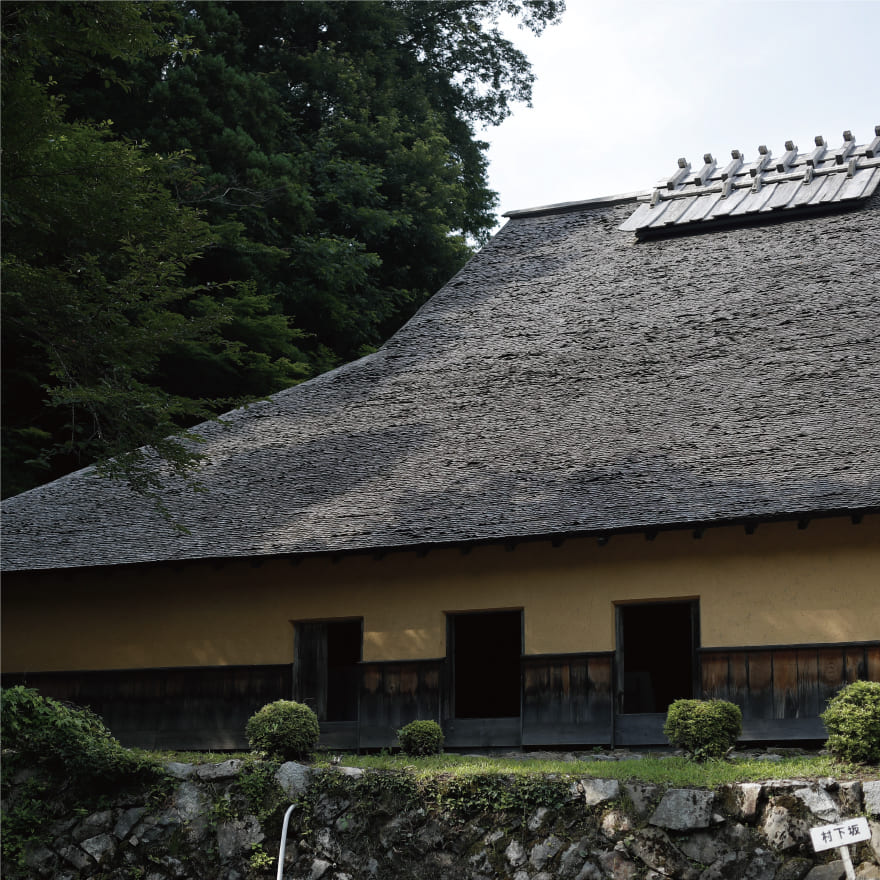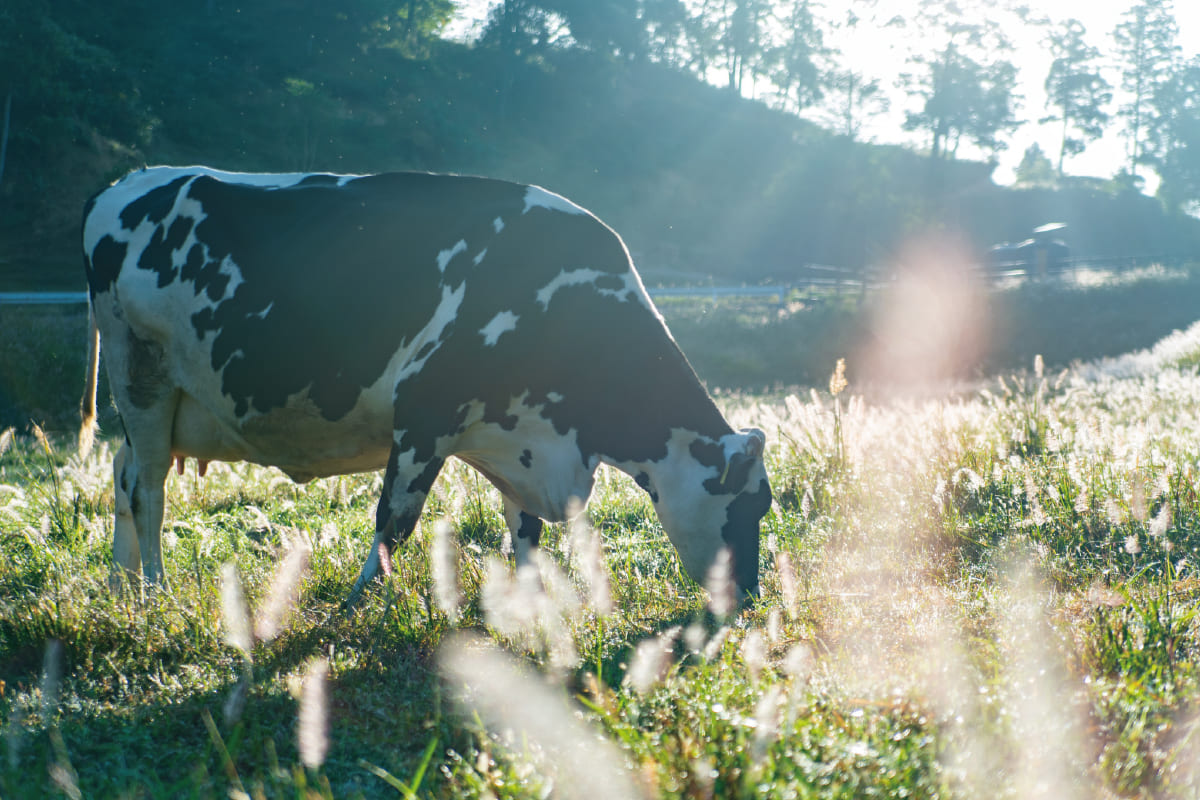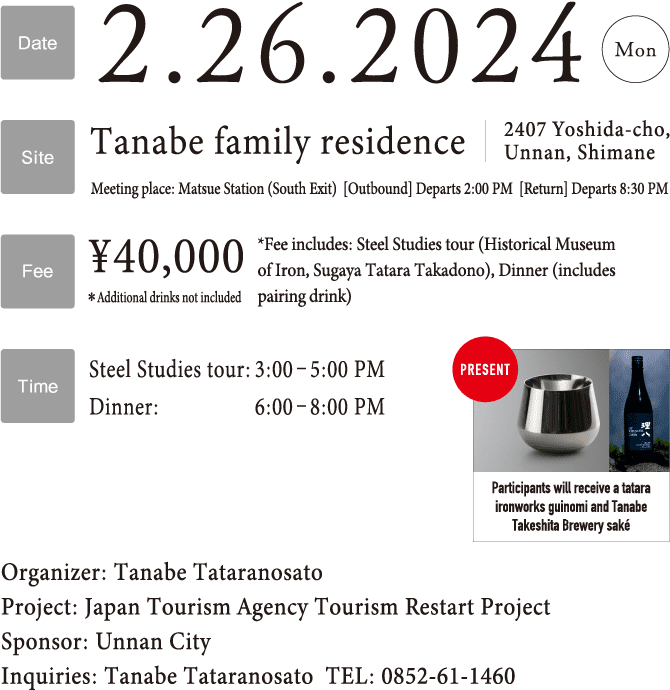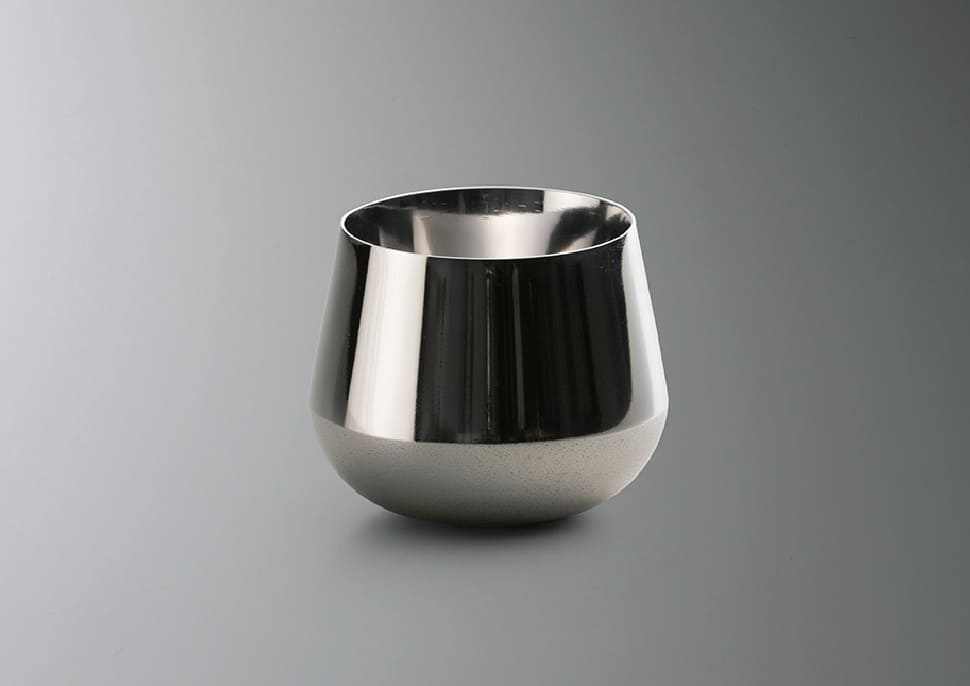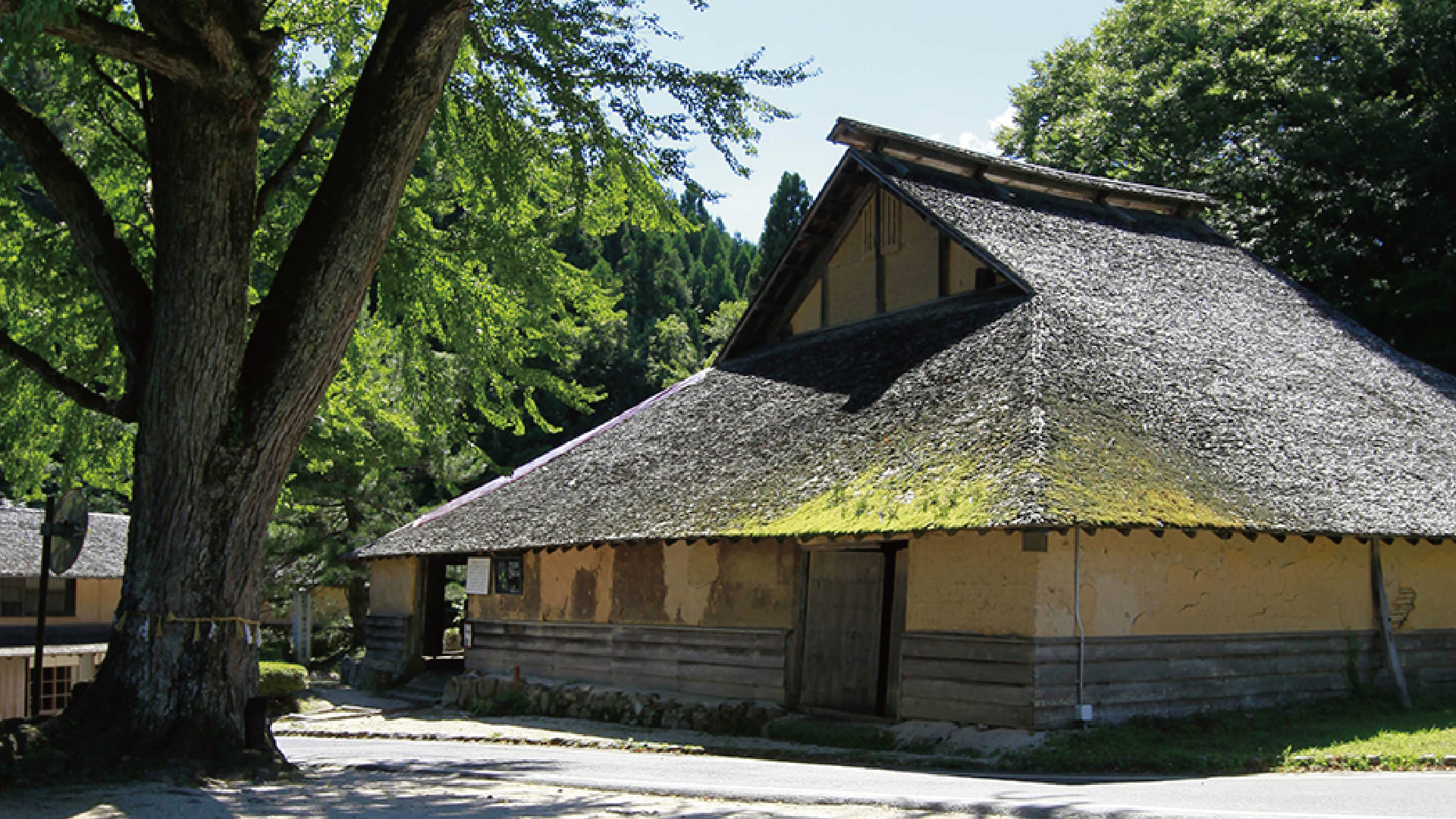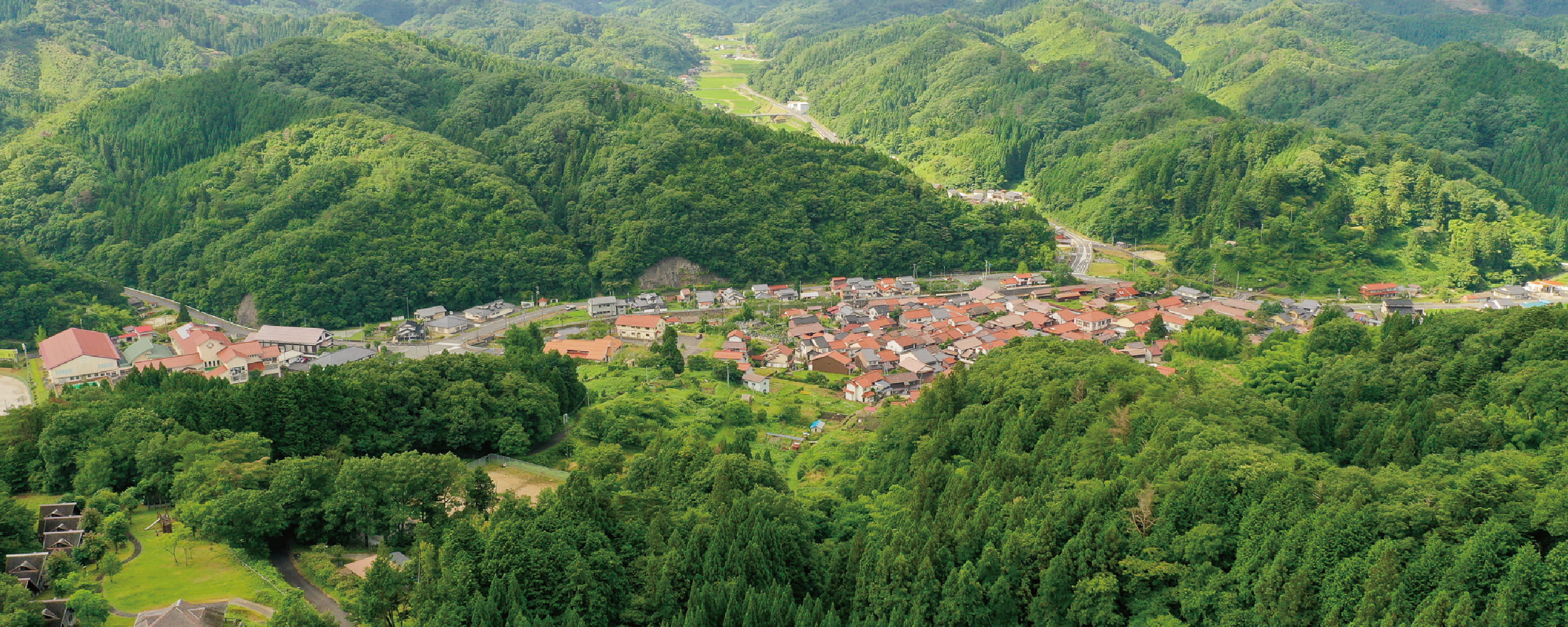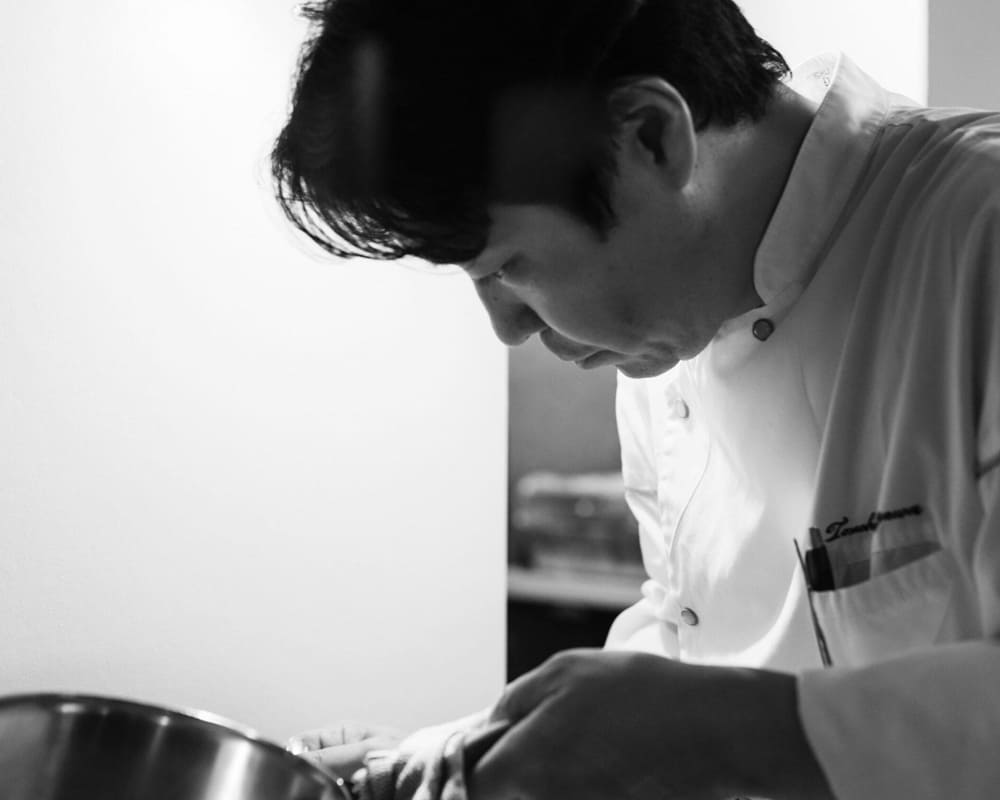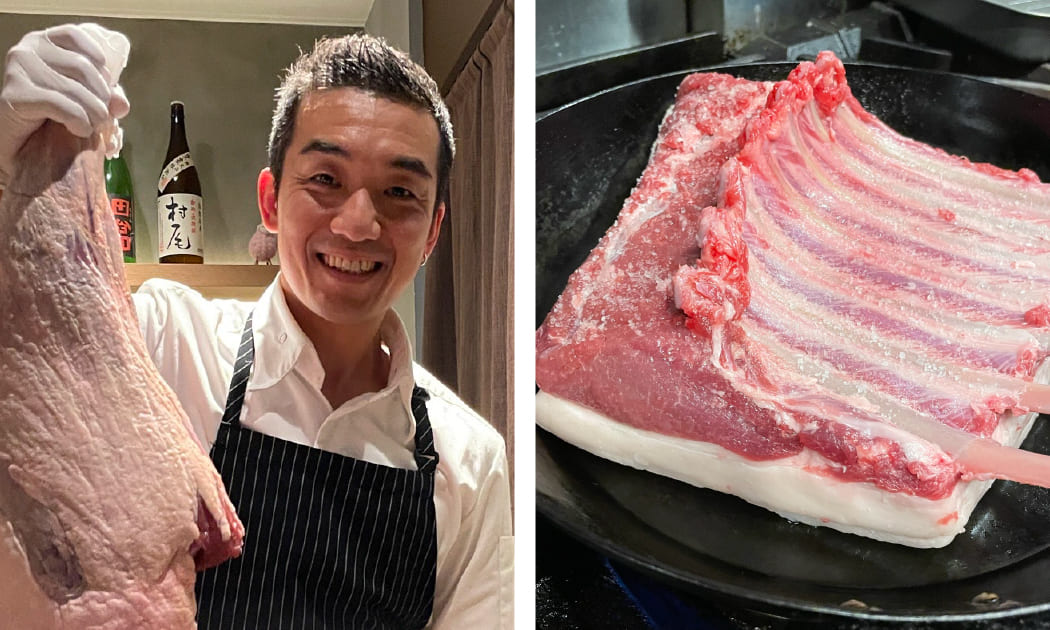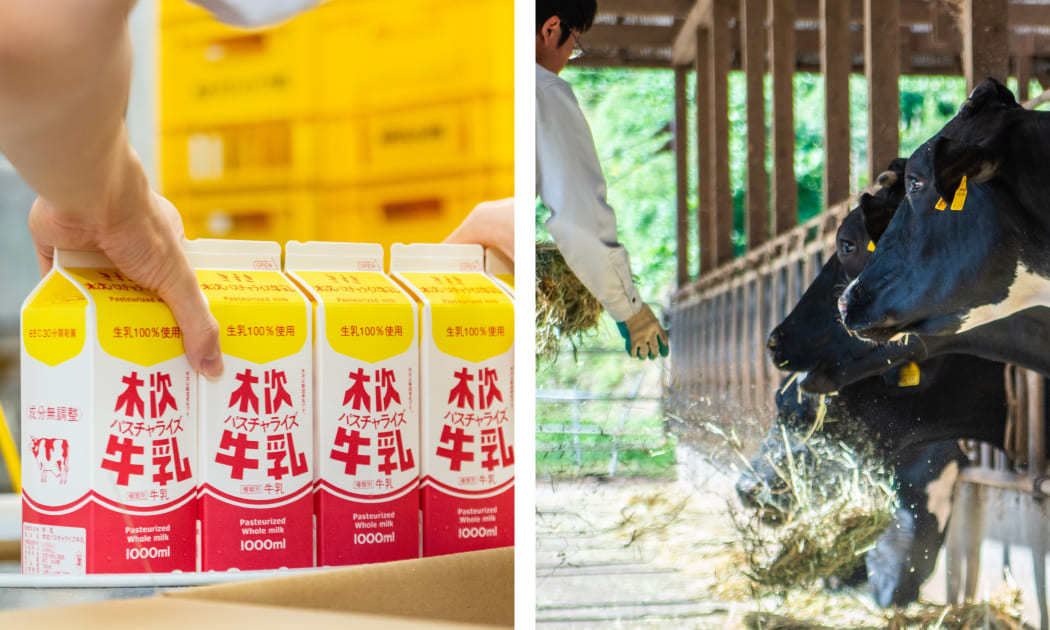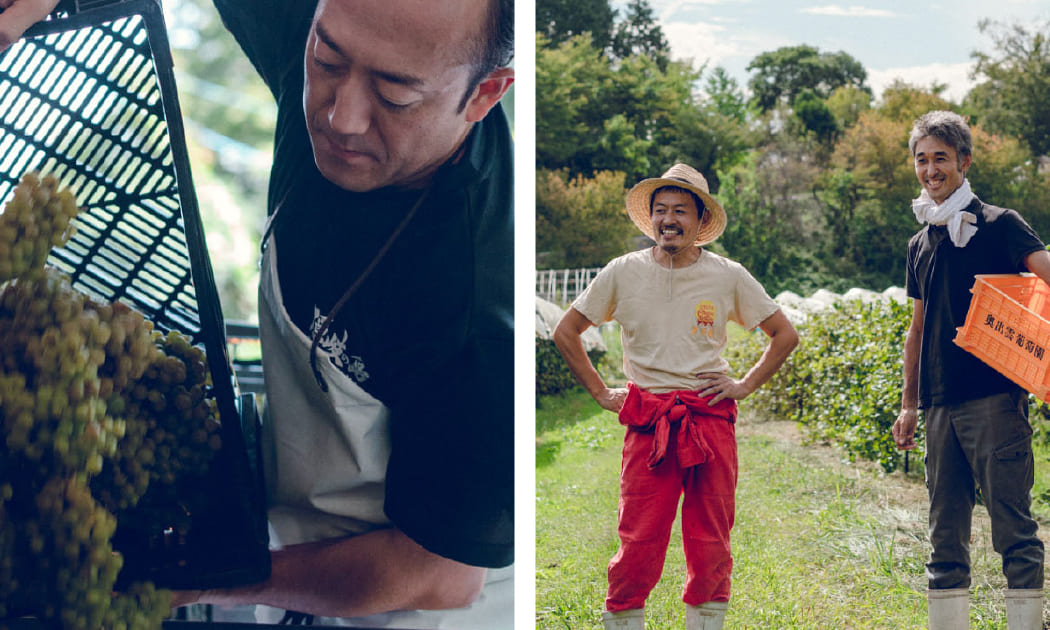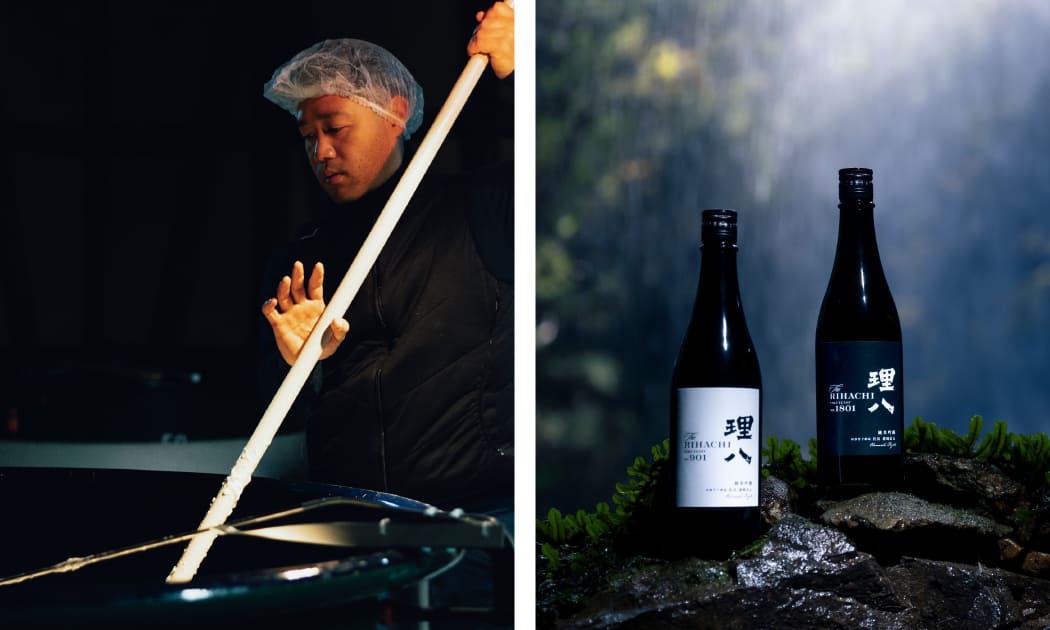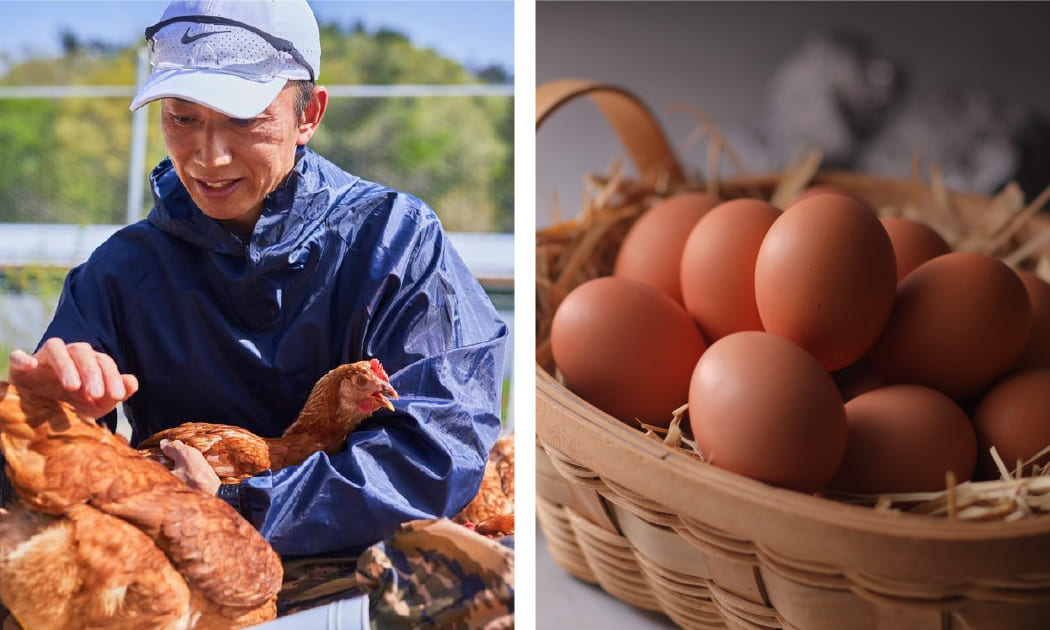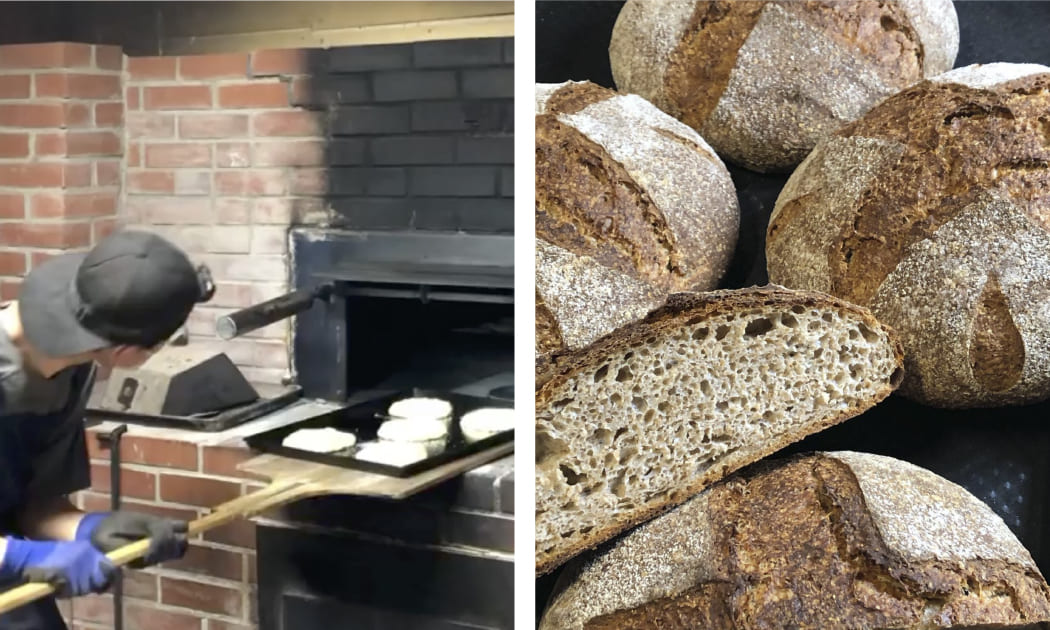Learn about the history
of tatara ironworks
Learn about the history of tatara ironworks, a sustainable industry in which humans coexist with nature, through a variety of materials: the Sugaya Tatara Takadono (ironmaking facility), designated as a National Important Tangible Folk Cultural Property, and the only one still standing in Japan; materials handed down to the Tanabe family, who were the lead ironworkers in the Matsue Domain; and a reenactment starring the last murage (supervising craftsman) with knowledge of that time.
The cutlery and the guinomi (sake cups) to be used in the dinner are exquisite pieces made of shinkatetsu, a type of tamahagane (traditional unique Japanese steel) crafted with tatarabuki, an ancient Japanese steel production process that was revived in 2018 after being dormant for a century. These pieces were produced by many different craftsmen channeling a modern sensibility. You will receive one of these guinomi as a memento of your trip.


